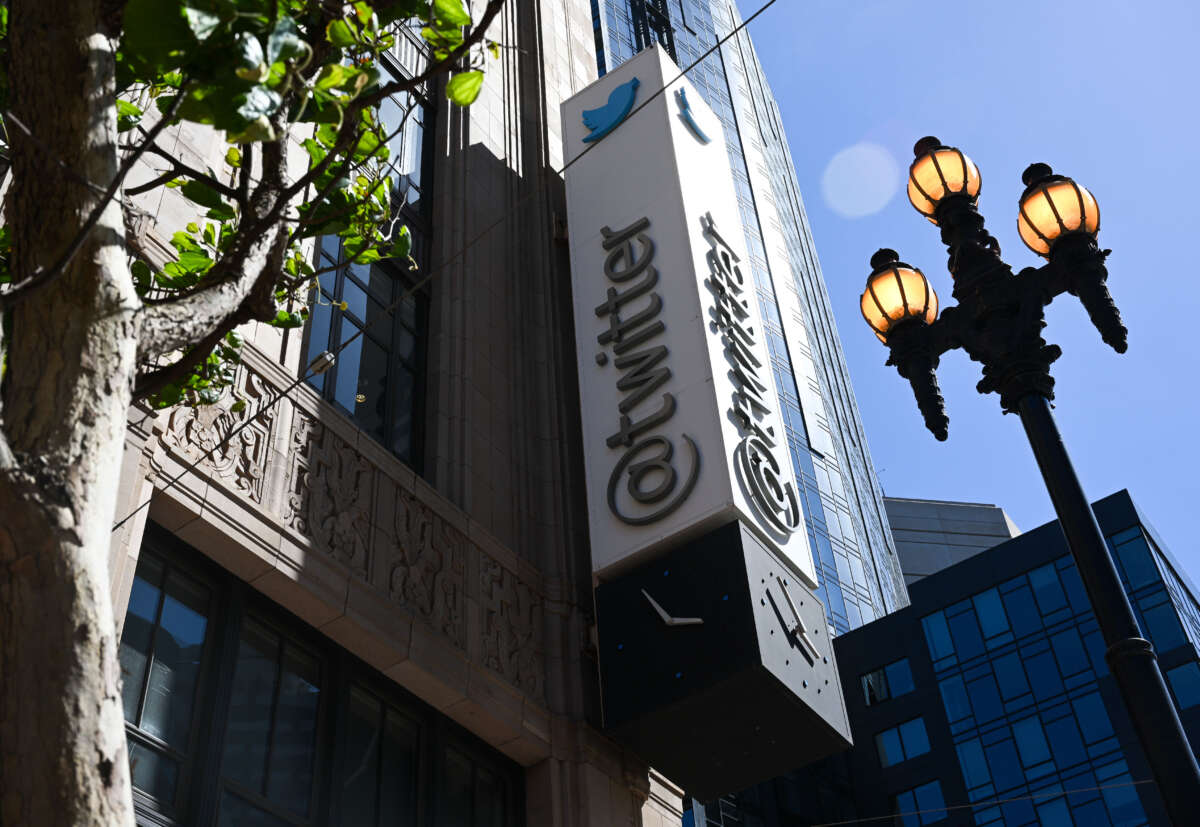Support justice-driven, accurate and transparent news — make a quick donation to Truthout today!
A new lawsuit filed against Twitter claims that the company has refused to pay out severance payments after it laid off thousands of workers when right-wing billionaire Elon Musk took over.
The proposed class action lawsuit, filed on behalf of former employee Courtney McMillian in a federal district court in California on Wednesday, claims that the company has failed to pay at least $500 million to former employees.
McMillian, who formerly oversaw Twitter’s employee benefits program in the human resources department, claims that the company in 2019 had created a program that promised employees two months and one week of severance pay for every full year they worked for the company if they were laid off, and six months plus one week for each year for senior employees.
Twitter’s 2022 merger agreement, from Musk’s original offer to buy the company, stated that the company would continue this severance agreement for a year after the merger was completed, which happened in October of last year.
But the company has failed to do that, reports have found. Some employees were only offered one month of severance pay, months after being laid off. Additionally, according to the lawsuit, many employees didn’t receive severance at all.
When asked for comment about the lawsuit, Twitter’s press email sent an automated response containing a poop emoji, as it has done since Musk got rid of the company’s press department earlier this year.
Musk has laid off over 6,000 people from Twitter, or about 80 percent of the people who were employed at the company when he took over just nine months ago. He claimed that the people he laid off were extraneous to the company — though, in recent months, the website has been plagued with bugs and outages, while decisions fueled by right-wing hatred, like the removal of its policy against deadnaming trans people, have led users to flee the platform and seek alternatives.
The latest lawsuit is just one of many legal and financial issues that have cropped up for the company in recent months.
So far, over 1,500 former employees have filed arbitration claims in relation to severance payments; another lawsuit filed last week claimed that the company is refusing to move forward with nearly 900 of these cases by not paying arbitration fees. Other lawsuits related to the layoffs have so far been unsuccessful.
The company has continually refused to pay regular bills and rent. In June, a judge allowed a landlord to evict the company from its office in Boulder, Colorado, after failing to pay rent for three months; the company was also sued by the owner of the building that houses Twitter’s headquarters in San Francisco in January after the company allegedly didn’t pay nearly $7 million in rent after Musk took over.
Similar reports of nonpayment have come out of the company’s offices in London and New York City. One lawsuit related to yet more alleged missing severance payments filed in May said that Musk once told an investor that he would “only pay rent over his dead body,” the investor said.
The company is also reportedly refusing to pay other bills that are crucial to keeping the website running. In June, Platformer reported that the company was refusing to pay bills owed to Google, which helps manage the site’s infrastructure. According to Bloomberg, the company resumed paying the bills shortly after the Platformer report was published.
Press freedom is under attack
As Trump cracks down on political speech, independent media is increasingly necessary.
Truthout produces reporting you won’t see in the mainstream: journalism from the frontlines of global conflict, interviews with grassroots movement leaders, high-quality legal analysis and more.
Our work is possible thanks to reader support. Help Truthout catalyze change and social justice — make a tax-deductible monthly or one-time donation today.
